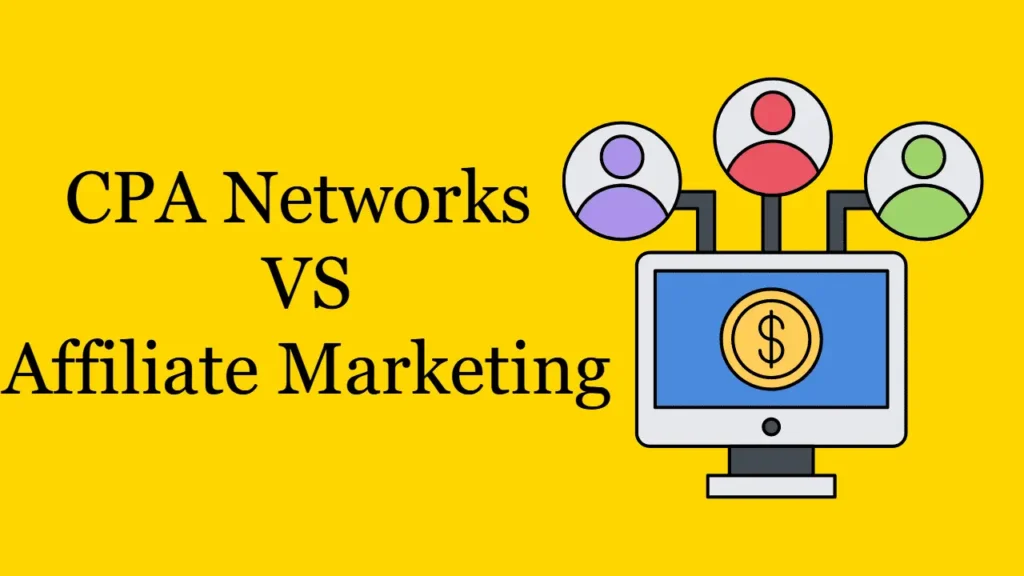
Introduction
The digital marketing world is evolving at breakneck speed, and performance-based marketing models like CPA (Cost Per Action) marketing and affiliate marketing are at the center of this transformation. By 2025, advancements in technology, shifting consumer behaviors, and stricter regulations will redefine how these models operate. Whether you’re a seasoned marketer or a beginner, understanding the differences, advantages, and limitations of CPA marketing and affiliate marketing is crucial to making informed decisions and maximizing your ROI.
In this in-depth guide, we’ll explore the pros and cons of CPA marketing and affiliate marketing in 2025, compare their key differences, and help you determine which strategy is best suited for your goals. Let’s dive in!
What Are CPA Marketing and Affiliate Marketing?
Before we compare the two, let’s define what CPA marketing and affiliate marketing are:
- CPA Marketing: CPA marketing is a performance-based model where advertisers pay publishers (affiliates) for specific actions, such as lead generation, app installs, or form submissions. CPA networks act as intermediaries, connecting advertisers with publishers and ensuring smooth transactions.
- Affiliate Marketing: Affiliate marketing is a broader performance-based model where affiliates promote products or services and earn a commission for driving sales or leads. Unlike CPA marketing, affiliate marketing often involves direct partnerships between brands and affiliates, without the need for an intermediary.
Now, let’s break down the pros and cons of each model in the context of 2025.
CPA Marketing in 2025: Pros and Cons
Pros of CPA Marketing
- Low Financial Risk for Advertisers
Advertisers only pay when a specific action is completed, such as a lead or sign-up. This performance-based model minimizes financial risk and ensures a higher ROI. - Diverse Offer Selection
CPA networks provide access to a wide range of offers across various niches, from finance and health to gaming and e-commerce. This diversity allows marketers to experiment and find high-converting campaigns. - Advanced Tracking and Analytics
By 2025, CPA networks will leverage AI and machine learning to offer real-time tracking and analytics. Marketers can optimize campaigns, identify trends, and maximize conversions with precision. - Fraud Prevention
CPA networks are increasingly adopting advanced fraud detection technologies, such as blockchain and AI, to ensure transparency and protect advertisers from fraudulent activities. - Scalability
CPA marketing makes it easy to scale campaigns quickly. With access to a large pool of advertisers and publishers, marketers can expand their reach without significant upfront costs. - Ease of Entry for Beginners
CPA marketing is beginner-friendly, as it requires minimal upfront investment and technical expertise. Publishers can start promoting offers with little to no experience.
Cons of CPA Marketing
- Lower Payouts for Publishers
Since CPA networks act as intermediaries, they often take a cut of the revenue, resulting in lower payouts for publishers compared to direct affiliate partnerships. - Limited Creative Control
Publishers have less control over the creative assets and landing pages used in CPA campaigns, which can limit their ability to optimize for conversions. - Dependence on Network Policies
CPA networks operate under specific rules and guidelines. Publishers must adhere to these policies, which can sometimes restrict creativity and flexibility. - High Competition
The popularity of CPA marketing means increased competition for high-paying offers, making it harder for new publishers to stand out. - Short-Term Focus
CPA campaigns are often transactional and short-term, making it challenging to build long-term relationships with audiences.
Affiliate Marketing in 2025: Pros and Cons
Pros of Affiliate Marketing
- Higher Earnings Potential
Affiliate marketing often offers higher payouts since there’s no intermediary taking a cut. Successful affiliates can earn substantial commissions, especially in lucrative niches like finance, software, and luxury goods. - Creative Freedom
Affiliates have full control over their marketing strategies, including the choice of creatives, landing pages, and promotional channels. This flexibility allows for greater optimization and personalization. - Direct Relationships with Advertisers
Affiliates can build direct relationships with brands, leading to better communication, exclusive offers, and higher trust levels. - Long-Term Passive Income
Affiliate marketing can generate passive income through evergreen content, such as blog posts, videos, and email campaigns. By 2025, AI-driven content creation tools will make it easier to scale these efforts. - Brand Loyalty and Trust
Affiliates who consistently promote high-quality products can build strong relationships with their audience, leading to increased trust and loyalty. - Diverse Monetization Options
Affiliates can promote physical products, digital products, subscriptions, and services, providing multiple streams of income.
Cons of Affiliate Marketing
- Higher Financial Risk
Unlike CPA marketing, affiliate marketing often requires upfront investment in content creation, advertising, and tools. If a campaign doesn’t convert, the affiliate bears the financial loss. - Time-Intensive
Building a successful affiliate marketing business takes time and effort. From creating content to driving traffic, affiliates must be prepared for a long-term commitment. - Dependence on Advertisers
Affiliates rely on advertisers for product quality, timely payouts, and commission structures. If an advertiser changes their terms or discontinues a product, it can negatively impact the affiliate’s earnings. - Regulatory Challenges
By 2025, stricter data privacy regulations and advertising guidelines may complicate affiliate marketing efforts, requiring affiliates to stay updated on compliance requirements. - Variable Commission Rates
Commission rates can vary widely depending on the advertiser and niche, making it difficult to predict earnings.
CPA Marketing vs. Affiliate Marketing: Key Differences in 2025
| Aspect | CPA Marketing | Affiliate Marketing |
|---|---|---|
| Payment Model | Pay per action (e.g., lead, sign-up) | Pay per sale or lead |
| Control | Limited control over creatives | Full control over marketing strategies |
| Earnings Potential | Lower payouts due to intermediary fees | Higher payouts with direct partnerships |
| Scalability | Easier to scale quickly | Requires more effort to scale |
| Risk | Lower financial risk for publishers | Higher financial risk for affiliates |
| Flexibility | Less flexible due to network policies | Highly flexible and customizable |
| Focus | Short-term, transactional campaigns | Long-term, relationship-building |
Which One Should You Choose in 2025?
The choice between CPA marketing and affiliate marketing depends on your goals, resources, and expertise. Here’s a quick guide to help you decide:
- Choose CPA Marketing If:
- You’re new to performance marketing and want a low-risk entry point.
- You prefer a hands-off approach with minimal creative control.
- You want to scale campaigns quickly without significant upfront investment.
- You’re looking for diverse offers across multiple niches.
- You’re focused on short-term, transactional campaigns.
- Choose Affiliate Marketing If:
- You’re willing to invest time and resources into building a sustainable business.
- You want higher earnings and direct relationships with advertisers.
- You value creative freedom and long-term passive income potential.
- You’re comfortable navigating regulatory challenges and staying updated on industry trends.
- You’re focused on building trust and long-term relationships with your audience.
Emerging Trends to Watch in 2025
- AI-Driven Optimization
Both CPA marketing and affiliate marketing will leverage AI to optimize campaigns, predict consumer behavior, and automate routine tasks. - Blockchain for Transparency
Blockchain technology will enhance transparency and trust in both models, ensuring secure transactions and reducing fraud. - Voice and Visual Search
Marketers will need to adapt to voice and visual search trends, creating campaigns that align with these emerging technologies. - Sustainability and Ethical Marketing
Consumers will increasingly favor brands and affiliates that prioritize sustainability and ethical practices. - Hybrid Models
Some marketers may combine CPA and affiliate marketing strategies to leverage the strengths of both models.
Conclusion: The Future of Performance Marketing
As we look ahead to 2025, both CPA marketing and affiliate marketing offer unique opportunities for marketers to thrive in the performance-based marketing space. CPA marketing provides a low-risk, scalable option with access to diverse offers, while affiliate marketing offers higher earnings potential and creative freedom. By understanding the pros and cons of each model and staying informed about emerging trends, you can make strategic decisions that align with your goals and resources.



